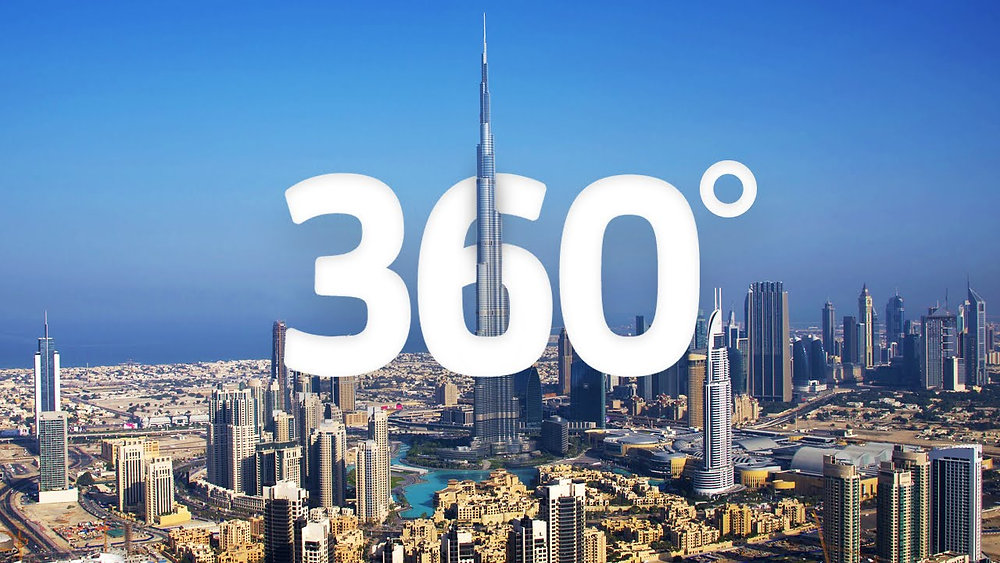Dubai doesn’t just chase trends, it reinvents them. While the world knows it for glittering skyscrapers and golden deserts, there’s a quieter story unfolding here. Behind the scenes, industries are quietly adopting 360 Virtual Reality not as a buzzword, but as a tool to solve real challenges, connect with global audiences, and push boundaries. Let’s break down how five key sectors are making this tech work for them.
1. Real Estate: Closing Deals Before the Cement Dries
Dubai’s property market moves fast. International buyers from London to Mumbai don’t always have time for in-person visits, and developers are done waiting. That’s where VR for real estate Dubai steps in.
Firms like Nakheel and Sobha now offer hyper-detailed virtual tours where buyers can inspect finishes on kitchen countertops, test balcony sightlines, or even stand on the roof of an unfinished tower.
The kicker? These tools aren’t just for luxury penthouses. Mid-market projects use them too, letting teachers from Canada or nurses from the Philippines explore future homes during lunch breaks. Agents joke that the only thing missing from these tours is the desert breeze, but for buyers, the convenience is real.
2. Hospitality: Letting Travelers Taste the Experience
Dubai’s hotels aren’t just selling rooms, they’re selling moments. The Ritz-Carlton’s private beach dinners, Atlantis’ underwater suites, or Al Maha’s desert sunsets lose something in 2D photos. With VR in hospitality, guests can now feel the ambiance before swiping their credit card.
The Jumeirah Group, for instance, embeds VR previews in booking confirmations. Click a link, and you’re suddenly at the infinity pool overlooking the Burj Khalifa, listening to the faint hum of the city. Tour operators take it further: VR for tourism lets travelers hike Hatta’s mountains or wander the Gold Souk’s alleyways during pre-trip consultations. It’s not about replacing the real thing, it’s about building anticipation (and trust) that clicks translate into bookings.
3. Construction: Avoiding Million-Dollar Oops
Mistakes in Dubai’s construction scene aren’t just costly, they’re headline news. But 360 Virtual Reality is changing the game. Before breaking ground on projects like the Dubai Creek Tower, engineers run VR simulations to spot design conflicts, like a support beam blocking a planned window view.
Workers also use VR headsets for safety drills, practicing emergency exits in a digital twin of the site. One project manager laughed, It’s cheaper to ‘fall off’ a virtual scaffold than deal with real injuries. The result? Fewer delays, happier clients, and a 20% drop in rework costs.
4. Retail: Where Personalization Meets Play
Dubai’s shoppers expect more than racks of clothes. Brands like IKEA and Level Shoes combine the online and offline worlds through 360 virtual reality in the Mall of the Emirates.
Imagine designing the living room while wearing a VR headset: switching rugs, resizing the sofa, and observing how afternoon light hits the coffee table, all before placing the order.
During the Dubai Shopping Festival, pop-up VR stations let customers try on limited-edition watches or tour a virtual concept store in Paris. It’s not just flashy tech; retailers say these tools cut returns by 35% because buyers know exactly what they’re getting.
5. Education: Training Brains Without Risking Lives
Dubai’s universities and corporate trainers have a problem: you can’t let students experiment with live MRI machines or airport control towers. But with 360 Virtual Reality, medical students at Mohammed bin Rashid University practice surgeries in a risk-free zone, while Emirates’ cabin crew rehearse emergency evacuations in a digital aircraft.
Even schoolkids benefit. Field trips to the Dubai Future Foundation’s labs include VR history lessons where students walk through 1960s Dubai. Teachers argue it’s not screen time, it’s context time.
Why This Isn’t Just Another Tech Gimmick
Dubai’s embrace of 360 Virtual Reality isn’t about being flashy, it’s practical. For a city that thrives on global connections, VR bridges distances. A property buyer in Seoul can tour a Dubai Hills villa via VR for real estate in Dubai without jet lag.
A bride in Rome can stand in a Jumeirah ballroom to plan her wedding. But the human touch still matters. Realtors still host coffee meetings after virtual tours. Hotel staff still greet guests with dates and Arabic coffee.
VR isn’t replacing these moments, it’s fast-tracking the boring parts so the meaningful ones shine brighter. Maybe a tech-powered future isn’t so surprising in a city that built islands shaped like palm trees. But for Dubai, 360 Virtual Reality isn’t about escaping reality. It’s about making it better.
Wrapping Up:
Dubai’s knack for turning imagination into tangible innovation shines brighter than ever with its adoption of 360 Virtual Reality. From the redefining work of property sales through VR for real estate Dubai to the creation of immersive previews in VR for tourism, the city is not just in pace with tech trends; rather, it’s the one setting it.
These sectors prove that VR is not meant to replace real-world experiences but to enhance our means of connecting, creating, and collaborating for businesses ready to dive into this transformative tech, the right partner matters. Limina Studios, a Dubai-based pioneer in immersive solutions, has been quietly powering many of these advancements.






















